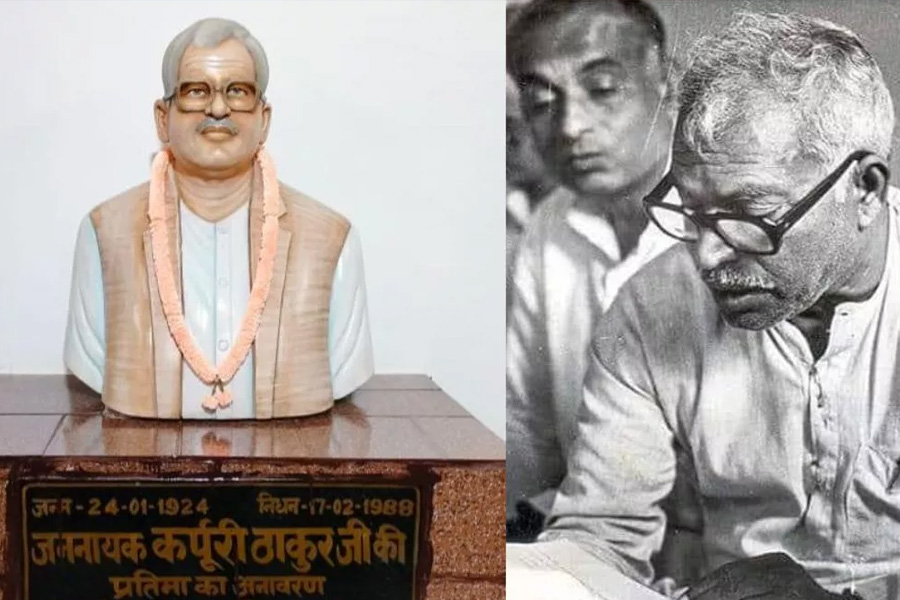
Thakurdid not consider Zionism as a settler-colonial project but a legitimate Jewish national movement with unique socialist ethos and practices that he observed all over Israel.
Author
Khinvraj Jangid, Professor, Jindal School of International Affairs (JSIA) and Director, Jindal Centre for Israel Studies (JCIS), O.P. Jindal Global University, Sonipat, Haryana, India.
Summary
Karpoori Thakur, the Bharat Ratna winner, was a socialist and an extraordinary mass leader. The Jan Nayak rose from a ‘low caste’ Nai background to become chief minister of the influential state of Bihar. A member of Bihar’s legislative assembly from 1952 to 1988, barring a stint in Parliament in 1977, he served two terms as the state’s chief minister – from 1970 to 1971 and then again from 1977 to 1979.
Thakur’s search for socialism – not that myopic mixture of Marxism-Leninism-Stalinism –took him to Israel, which was socialist but not a communist country. According to Israeli archives, he was impressed by the country’s socialist movement and labour organisations in the 1950s. In those years, India did not have diplomatic relations with the country. It recognised Israel in 1950, establishing full diplomatic relations only in 1992. Yet, Thakur spent two months in the country – from June to August 1959 – to study its cooperative organisations and different agricultural settlements. Inspired by the socialist Zionist movement and the Kibbutz – a traditionally agrarian voluntary collective community – his visit was part of the decade-long engagement with Israel by leaders like Ram Manohar Lohia, Ashok Mehta and Jayaprakash Narayan.
During the 1950s and ’60s, many Indian leaders from the Congress and other parties actively engaged with Israeli political leaders and community figures. First, by visiting Israel to experience and study the Kibbutz system and democratic-socialist Zionism, as well as maintaining long correspondence with leaders like the former Israel PM David Ben-Gurion. Second, by facilitating and inspiring hundreds of others from Indian socialist camps, grassroots movements, and trade-labour unions to visit Israel. And third, by advocating for full diplomatic relations with the country.
Published in: The Print
To read the full article, please click here.

